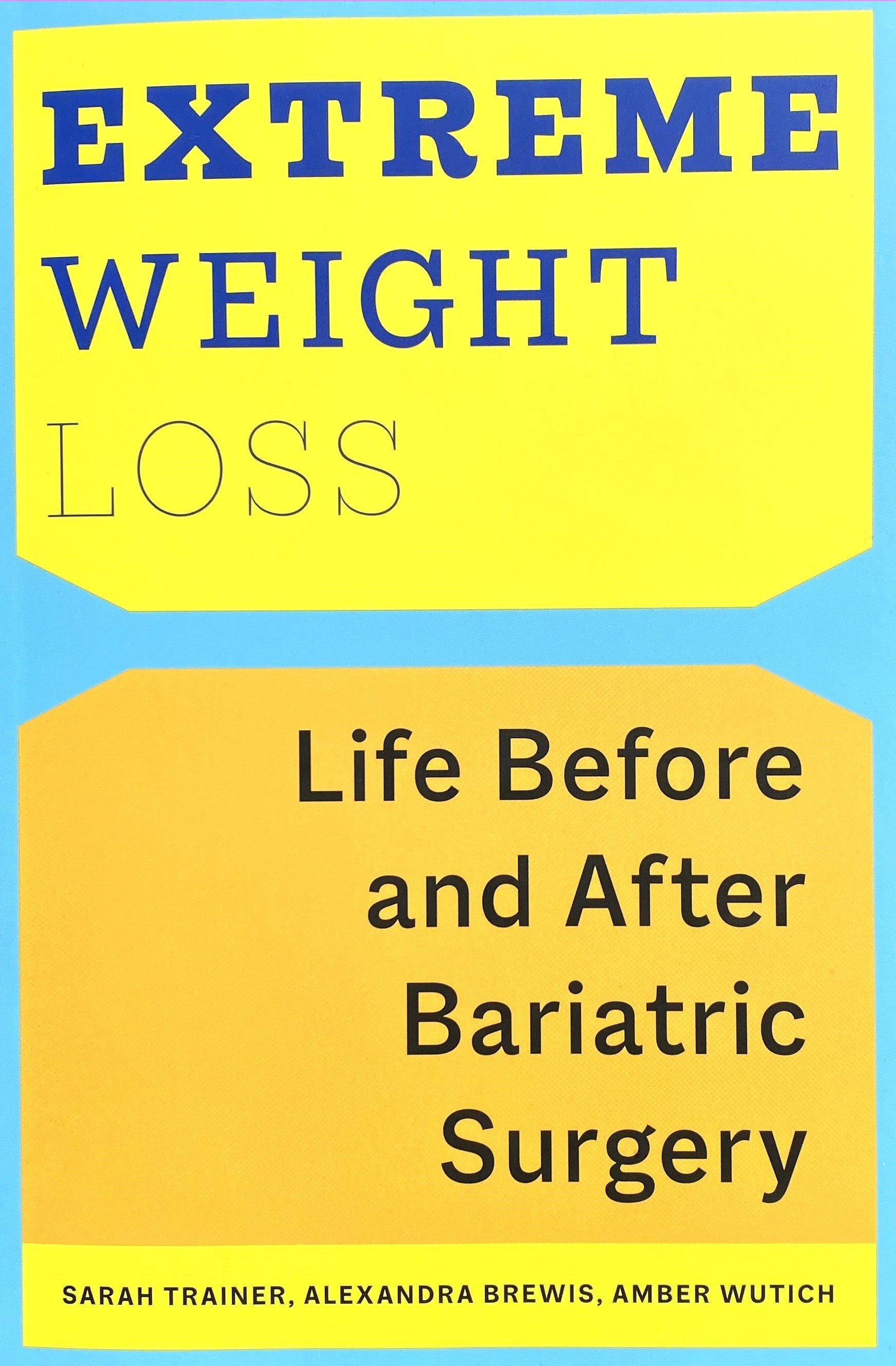ASU anthropologists consider the challenges of extreme weight loss in new book

From left to right: Alexandra Brewis, Amber Wutich and Sarah Trainer, co-authors of "Extreme Weight Loss: Life Before and After Bariatric Surgery."
You may know someone who has undergone bariatric surgery — an intense medical procedure that reduces the size of a person’s stomach to help with rapid weight loss. Doctors performed an estimated 256,000 of these procedures in 2019, according to the American Society for Metabolic and Bariatric Surgery.
A team of Arizona State University anthropologists set out to better understand extreme weight loss via bariatric surgery by interviewing and surveying Arizona bariatric patients. The findings, published this month in a new book, intimately describe the journey leading up to surgery and life after the procedure.
School of Human Evolution and Social Change anthropologists Alexandra Brewis and Amber Wutich co-wrote the book with Sarah Trainer, who was a postdoctoral scholar at ASU during the study and continues to be an affiliated researcher with ASU’s Center for Global Health.
The researchers interviewed patients over several years before and after bariatric surgery, accompanied them to pre- and post-surgery classes and support groups, and spent time talking with clinicians and hospital staff. The study provides a window into the complex experiences of extreme weight loss from the patient point of view.
The book outlines why people get the surgery and some of the short- and long-term challenges, while exploring stigmas and norms around living with high body weights in a society that the authors say harshly judges those with large bodies.
“Weight discrimination is legal, pervasive and – for those that endure it – soul-destroying,” Brewis said. “By tracing how bariatric patients’ lives changed as they lost large amounts of body weights, we are telling a larger story of how society’s stigma toward large bodies harms and hurts so many.”
Trainer hopes the book will encourage readers to think critically about how they view weight and weight loss. For example, a gastric bypass is considered an elective surgery, but many patients in the study, and their doctors, saw it as a necessary, life-saving intervention. The surgery can successfully treat diabetes and other chronic weight-related diseases.
While those who have heard of bariatric surgery may already have positive or negative thoughts about it, Trainer hopes the book will help people better understand what the surgery is and why patients have it done.
Many people interviewed for this research had bariatric surgery to improve their health and quality of life, or to feel more accepted and to “fit in.”
"I’m an active soul in a large body, and it doesn’t work, you know?” shared one participant. “I want to go hike ... I want to go to the Caribbean and snorkel and scuba dive. I’m going to get emotional. But I want to do those things, and I can’t. I can’t, physically I can’t."
After the surgery, some participants saw a positive transformation, and talked about their postsurgical lives with joy. Others faced new challenges. The book explores some of these challenges of the surgery that people might not initially consider.
In a culture that views weight loss as a success, some patients had internalized the idea that the surgery was “cheating” at weight loss. One participant shared that someone told her getting a bypass was “the easy way” to lose weight and she described how nothing about the process was easy.
For some patients, there is a worry of regaining weight, and they count calories daily or constantly monitor their weight.
Months after the surgery, one participant said, “I don’t feel super confident, like I beat this. Every day, every day I have to think about it, every day. I think it’s going to be a lifelong thing.”
“Extreme Weight Loss: Life Before and After Bariatric Surgery” was published in April 2021 by New York University Press.
More Health and medicine
Is ‘U-shaped happiness’ universal?
A theory that’s been around for more than a decade describes a person’s subjective well-being — or “happiness” — as having a U-…
College of Health Solutions medical nutrition student aims to give back to her Navajo community
As Miss Navajo Nation, Amy N. Begaye worked to improve lives in her community by raising awareness about STEM education and…

Linguistics work could improve doctor-patient communications in Philippines, beyond
When Peter Torres traveled to Mapúa University in the Philippines over the summer, he was shocked to see a billboard promoting…
